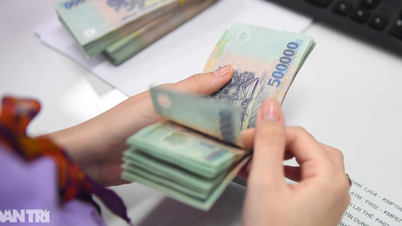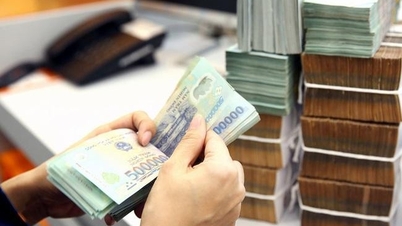The Ministry of Finance is drafting a 50% reduction in registration fees for domestic cars, but predicts that the stimulus effect may be less than in the previous period.
Under the direction of Deputy Prime Minister Le Minh Khai, the Ministry of Finance is drafting a Decree to reduce 50% of registration fees for domestically produced and assembled cars, trailers and similar vehicles. This policy is expected to take effect from the date of signing the Decree until the end of 2023.
Reducing registration fees is considered to help stimulate consumption and remove difficulties for domestic automobile manufacturing and assembly enterprises in the context of many economic difficulties.
However, this fee reduction, according to the Ministry of Finance, will have a different impact than previous reductions.
In 2020 and 2022, the main cause of difficulties for the domestic automobile manufacturing and assembly industry was the disruption of the supply chain leading to supply disruptions. Therefore, the fee reductions in these two times have encouraged companies to resume the supply chain, meeting people's car buying needs to enjoy policy incentives.
Specifically, when the registration fee reduction was applied in the last 6 months of 2020, the average number of domestic vehicles registered for the first time per month was 34,900, double that of the first half of the year. With the fee reduction from December 2021 to the end of May 2022, the number of domestically produced and assembled vehicles registered in the first 5 months of 2022 also increased from 1.2 to 2 times compared to the same period in 2021.
The number of vehicles sold has increased sharply, thereby helping to increase budget revenue from registration fees, special consumption tax, and value added tax (VAT), offsetting the 50% reduction in registration fees.
However, the Ministry of Finance assessed that current purchasing power and consumption are different from the period of 2020-2022. People's demand for cars may be lower than the previous period, despite the reduction in registration fees. Therefore, revenue from taxes including VAT and special consumption tax may not be enough to offset the reduction in registration fees. This policy may reduce budget revenue from this item by VND8,000-9,000 billion.
Currently, production and business activities, especially industrial production and export, are affected, which in the long term may have a negative impact on people's lives. The situation of high inflation and low growth persisting, and the risk of economic recession in other countries will also affect the domestic situation.
In addition, the 50% reduction in registration fees for domestically produced and assembled cars may affect the balance of local state budget revenues. According to regulations, registration fees belong to local budgets.
However, in reality, VAT and special consumption tax revenues are concentrated in only 8 localities: Vinh Phuc, Hai Duong, Hai Phong, Ninh Binh, Da Nang, Quang Nam, Binh Duong, and Ho Chi Minh City (where domestic automobile manufacturing and assembly companies are located). And registration fee revenues have only increased in 11 localities, the remaining 52 localities have reduced revenues from this policy. Localities have requested the central budget to compensate for this revenue shortfall to ensure local budget balance.
Quynh Trang
Source link




![[Photo] Panorama of the Opening Ceremony of the 43rd Nhan Dan Newspaper National Table Tennis Championship](https://vphoto.vietnam.vn/thumb/1200x675/vietnam/resource/IMAGE/2025/5/19/5e22950340b941309280448198bcf1d9)
![[Photo] Close-up of Tang Long Bridge, Thu Duc City after repairing rutting](https://vphoto.vietnam.vn/thumb/1200x675/vietnam/resource/IMAGE/2025/5/19/086736d9d11f43198f5bd8d78df9bd41)
![[Photo] General Secretary To Lam attends the conference to review 10 years of implementing Directive No. 05 of the Politburo and evaluate the results of implementing Regulation No. 09 of the Central Public Security Party Committee.](https://vphoto.vietnam.vn/thumb/1200x675/vietnam/resource/IMAGE/2025/5/19/2f44458c655a4403acd7929dbbfa5039)
![[Photo] President Luong Cuong presents the 40-year Party membership badge to Chief of the Office of the President Le Khanh Hai](https://vphoto.vietnam.vn/thumb/1200x675/vietnam/resource/IMAGE/2025/5/19/a22bc55dd7bf4a2ab7e3958d32282c15)





























![[Photo] Prime Minister Pham Minh Chinh inspects the progress of the National Exhibition and Fair Center project](https://vphoto.vietnam.vn/thumb/1200x675/vietnam/resource/IMAGE/2025/5/19/35189ac8807140d897ad2b7d2583fbae)


























































![[VIDEO] - Enhancing the value of Quang Nam OCOP products through trade connections](https://vphoto.vietnam.vn/thumb/402x226/vietnam/resource/IMAGE/2025/5/17/5be5b5fff1f14914986fad159097a677)



Comment (0)